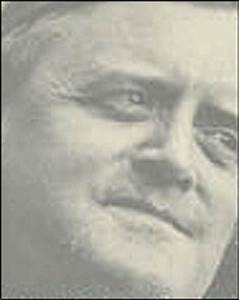
Gondwana, also known as Gondaranya, is a region of India, named after the Gondi people who live there. The name of the ancient continent of Gondwanaland was derived from Gondwana, because some of the earliest rock formations of this continent were first investigated in part of the region, in modern Odisha.

Gadchiroli district is an administrative district in Maharashtra, India. The city of Gadchiroli is the administrative headquarters of the district.

The Gondi (Gōṇd̄ị) or Gond people, who refer to themselves as "Koitur", are an ethnolinguistic group in India. Their native language, Gondi, belongs to the Dravidian family. They are spread over the states of Madhya Pradesh, Maharashtra, Chhattisgarh, Uttar Pradesh, Telangana, Andhra Pradesh, Bihar, Assam, Uttarakhand, Arunachal Pradesh, and Odisha.
Mahatma Gandhi (1869–1948) is widely regarded as the main icon of the Indian independence movement.

Mahakoshal or Mahakaushal is a region of central India. Mahakoshal lies in the upper or eastern reaches of the Narmada River valley in the Indian state of Madhya Pradesh. Jabalpur is the largest city in the region. Nimar region lies to the west, in the lower reaches of the Narmada valley.

Gondi (Gōṇḍī) is a South-Central Dravidian language, spoken by about three million Gondi people, chiefly in the Indian states of Madhya Pradesh, Maharashtra, Chhattisgarh, Andhra Pradesh, Telangana and by small minorities in neighbouring states. Although it is the language of the Gond people, it is highly endangered, with only one fifth of Gonds speaking the language. Gondi has a rich folk literature, examples of which are wedding songs and narrations. Gondi people are ethnically related to the Telugus.
Gondwana was a supercontinent also known as Gondwanaland.

Harry Verrier Holman Elwin was a British-born Indian anthropologist, ethnologist and tribal activist, who began his career in India as a Christian missionary. He first abandoned the clergy, to work with Mahatma Gandhi and the Indian National Congress, then converted to Hinduism in 1935 after staying in a Gandhian ashram, and split with the nationalists over what he felt was an overhasty process of transformation and assimilation for the tribals. Verrier Elwin is best known for his early work with the Baigas and Gonds of Orissa and Madhya Pradesh in central India, and he married a 13 year old member of one of the communities he studied. He later also worked on the tribals of several North East Indian states especially North-East Frontier Agency (NEFA) and settled in Shillong, the hill capital of Meghalaya.

Madia Gonds or Madia or Maria are one of the endogamous Gond tribes living in Chandrapur District and Gadchiroli District of Maharashtra State, and Bastar division of Chhattisgad State India. They have been granted the status of a Particularly Vulnerable Tribal Groups by the Government of India under its affirmative action or reservation programme. The Madia Gonds are strongly affected by Naxal activities. The Madia Gond use the self designation Madia, and call the area where they live Madia Desh. They speak the Madia dialect of Gondi. The shifting agriculture of madia is known as jhoom.
A study mentions living megalithic practices amongst the Madia Gonds. One of the findings of The Bench Mark Survey done in 1997–1998: 91.08 percent of Madia Gond families lived Below Poverty Line.

Komaram Bheem (1901–1940), alternatively Kumram Bheem, was a revolutionary leader in Hyderabad State of British India from the Gond tribes. Bheem, in association with other Gond leaders, led a protracted low intensity rebellion against the feudal Nizams of Hyderabad in the eastern part of the princely state during the 1930s, which contributed in the culmination of the Telangana Rebellion of 1946.
The Gondi languages are a subgroup of the indigenous family that includes Gondi and related languages. Gondi proper is the most widely spoken language, with over 10 million speakers. Other languages in this subgroup include Muria, Madiya, and Koya. It is undetermined whether Pardhan is a separate language or a dialect of Gondi, although current fieldwork suggests it is a dialect. Khirwar is a poorly-attested language spoken by people in the general Gond area, and so is assumed to be related to Gondi.
The Rajgonds are the ruling class of the Gonds. The region of Gondwana consisted of neighbouring kingdoms. To the south was the Kingdom of Chanda and to the north was the powerful Garha-Mandla kingdom. In the 16th century, the Kingdom of Deogarh rose as a powerful state with the Kherla Kingdom in its western past.

Gowari is an Indian caste of cattleman or herdsmen, predominantly living in Maharashtra, Madhya Pradesh and Chhattisgarh.
Gondi is a village in Mah Neshan Rural District, in the Central District of Mahneshan County, Zanjan Province, Iran. At the 2006 census, its population was 254, in 57 families.

The Gunjala Gondi lipi or Gunjala Gondi script is a script used to write the Gondi language, a Dravidian language spoken by the Gond people of northern Telangana, eastern Maharashtra, southeastern Madhya Pradesh, and Chhattisgarh. Approximately a dozen manuscripts in the script were recovered from Gunjala, a Gond village in Adilabad district of Telangana, by a team of researchers from the University of Hyderabad, led by Professor Jayadheer Tirumala Rao. The script and preliminary font were unveiled in early 2014.
Motiravan Kangali or Moti Ravan Kangale was an Indian linguist and author from the Gond community. He is known for his work on the origins and development of the Gondi language, and particularly for his creation of a script for it. Kangali authored Gondi dictionaries in English, Hindi and Marathi. He also aided efforts for the standardization and preservation of Gondi grammar while authoring several books on Gond society, culture and religion.









